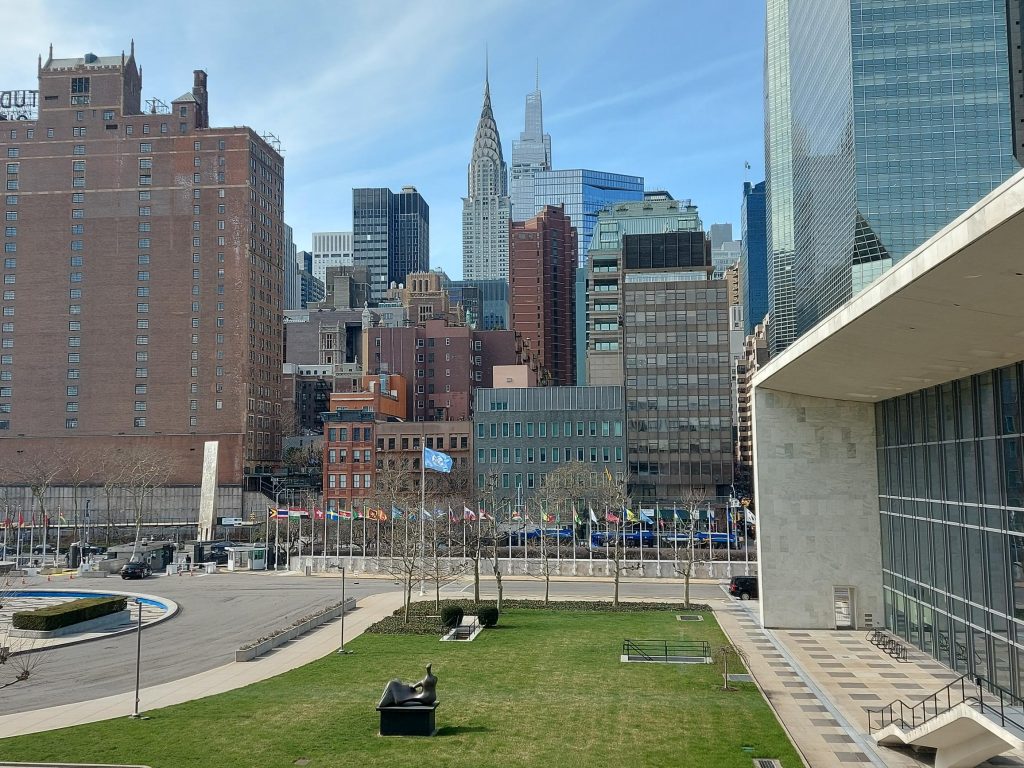
Reflections on 2024
The year has been positive and demonstrates significant delivery, in particular within the advocacy and collaboration areas of work following the return of institutions in February 2024. Women’s Platform was very pleased to see the Executive and Assembly back, and is hopeful that stable institutions will enable a new focus on rights based, inclusive decision making. The inclusion of childcare and ending violence against women and girls in the draft Programme for Government are positive signs, and Women’s Platform is encouraged that the Ending Violence against Women and Girls is based in international human rights standards, while also resourced to support new areas of action.
Building relationships
For Women’s Platform, the year was characterised by bridge building and new relationships. In person participation at the Commission on the Status of Women 68 in March was a particular highlight, demonstrating the value of investment in international engagement, a s the delegation gained significant new learning and connections that have informed all our work over the year and contributed to identifying new opportunities. The role of Women’s Platform as a bridge builder was further highlighted during the year, in particular through revitalising four nations collaboration and exploring new engagement with the European Women’s Lobby. This area of work is vital in the current global context of a growing backlash on rights, demonstrated very clearly during the racist and islamophobic riots in August, and Women’s Platform is committed to building effective international collaboration, as well as East-West and five nations working to help build intersectional, inclusive and anti racist approaches.
Strengthening women’s voices in peacebuilding
The Women’s S paces project, delivered as a consortium with Northern Ireland Rural Women’s Network, Women’s Resource and Development Agency and Women’s Support Network, which developed significantly over the year, and has demonstrated both the value of capacity building and keen interest of women to participate in peacebuilding public life. Over 400 women across Northern Ireland have engaged with Women’s Spaces to date, and the programme is highlighting the need for mechanisms for women to be heard in decision making, which will be a priority also for Women’s Platform in the coming year. Women’s Platform continued to build relationships at UK level with the GAPS network as well as NIO, and is excited to launch a project funded through the UK NAP, working with FCDO and NIO, exploring how women peacebuilders in Northern Ireland could better engage with women peacebuilders in other (post)conflict regions, to share learning, experiences and good practice. Workshops will take place in January and findings are due in March, with the hope that further projects building women’s voices in peacebuilding can follow.
Supporting the sector advocate for rights
While the advocacy workload has continued to build throughout the year, the capacity building element was a key development focus, and the training programmes as well as webinars sharing good practice from international networks were highlights of the year, with feedback demonstrating that participants gain confidence to engage in decision making processes following training.
This demonstrates the value and contribution of Women’s Platform to the sector, and it is encouraging that mechanisms such as the All Party Group on UNSCR 1325, Women, Peace and Security also has taken an open and inclusive approach to its work. Over the next year, focus will be on strengthening work in this area, and Women’. Women’s Platform is also focusing on securing long term delivery, as learning and evaluation of work throughout the year shows that effective engagement must build on extensive capacity building at multiple levels, and in particular reach out to marginalised and minoritised groups to strengthen awareness of rights and capacity to advocate for equality and human rights as the basis for decision making.